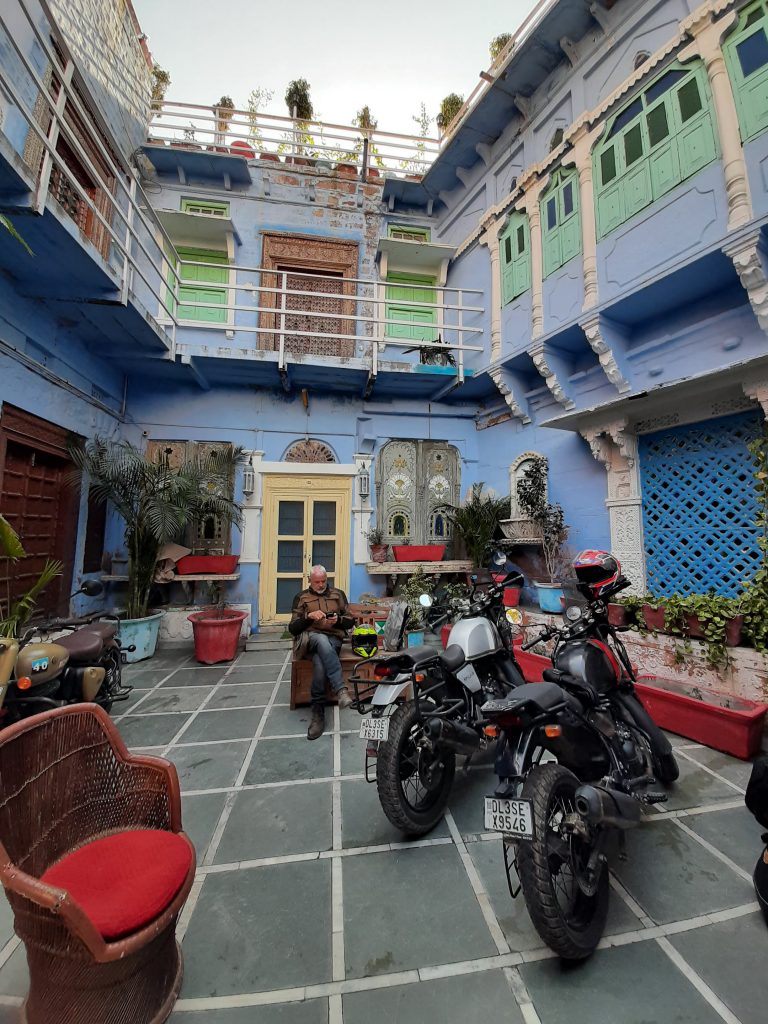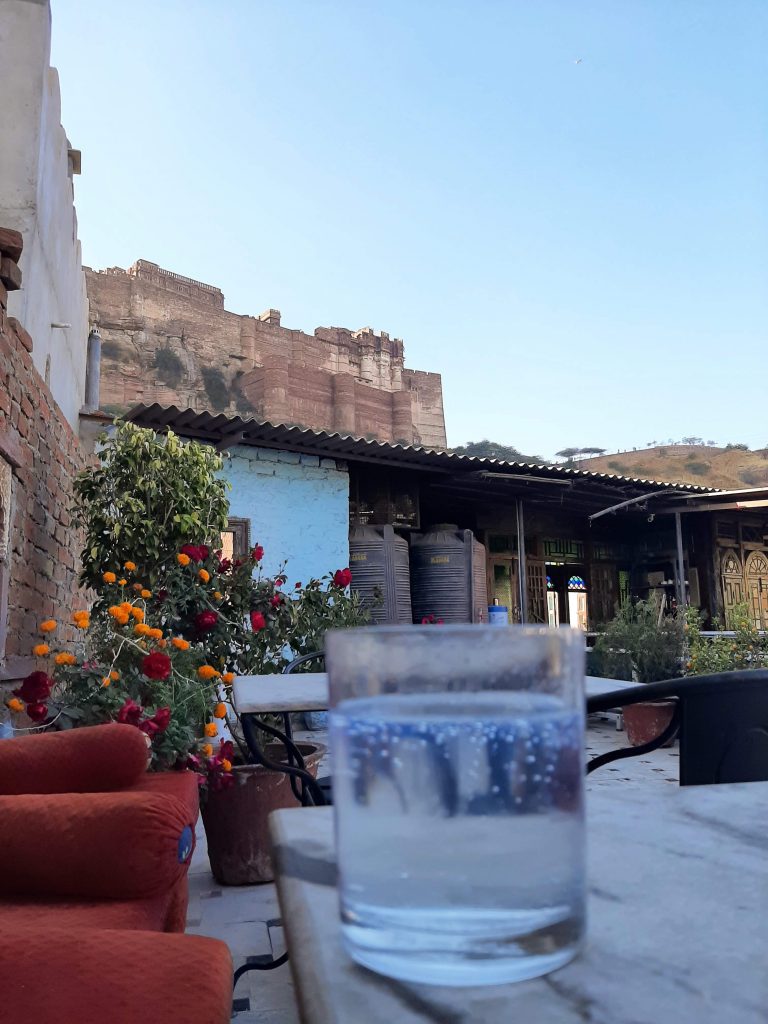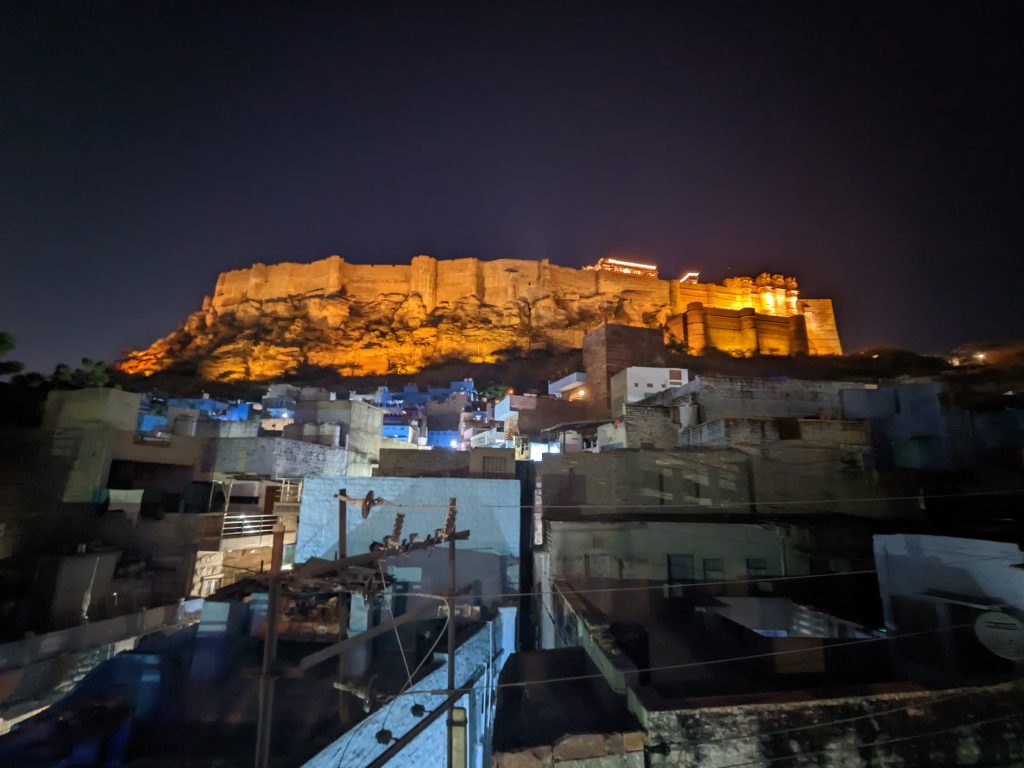Camels, Chaos, and Finding Calm: Bikaner to Jodhpur
We came to Bikaner to see the camel festival but saw only part of it. We took a tuk-tuk to the out-of-town research centre that hosted the festival and watched with surprise how in the twenty-first century, these majestic, proud animals are pushed to perform dance maneuvers that are so visibly alien to their nature. The music, the colours, and the very ornate coverings were all beautiful, but the camels did not look happy about the role they played in this display. I must admit, this circus brought tears to my eyes, so we admired what we could and decided to skip the rest of the festival. Instead, we visited yet another fort, wandered the streets, and spent the evenings gazing into the fire our hosts had in the courtyard every night after filling our bellies with the best food we’ve had during our entire tour.
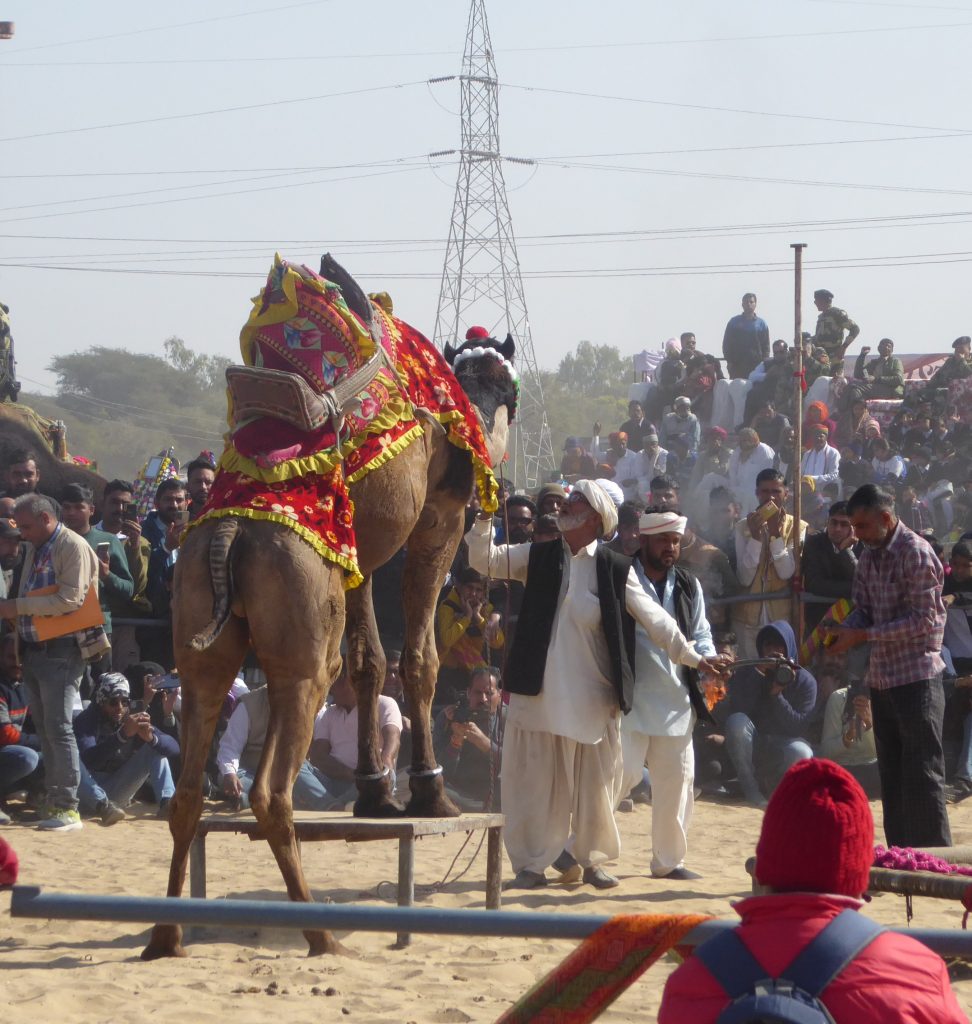
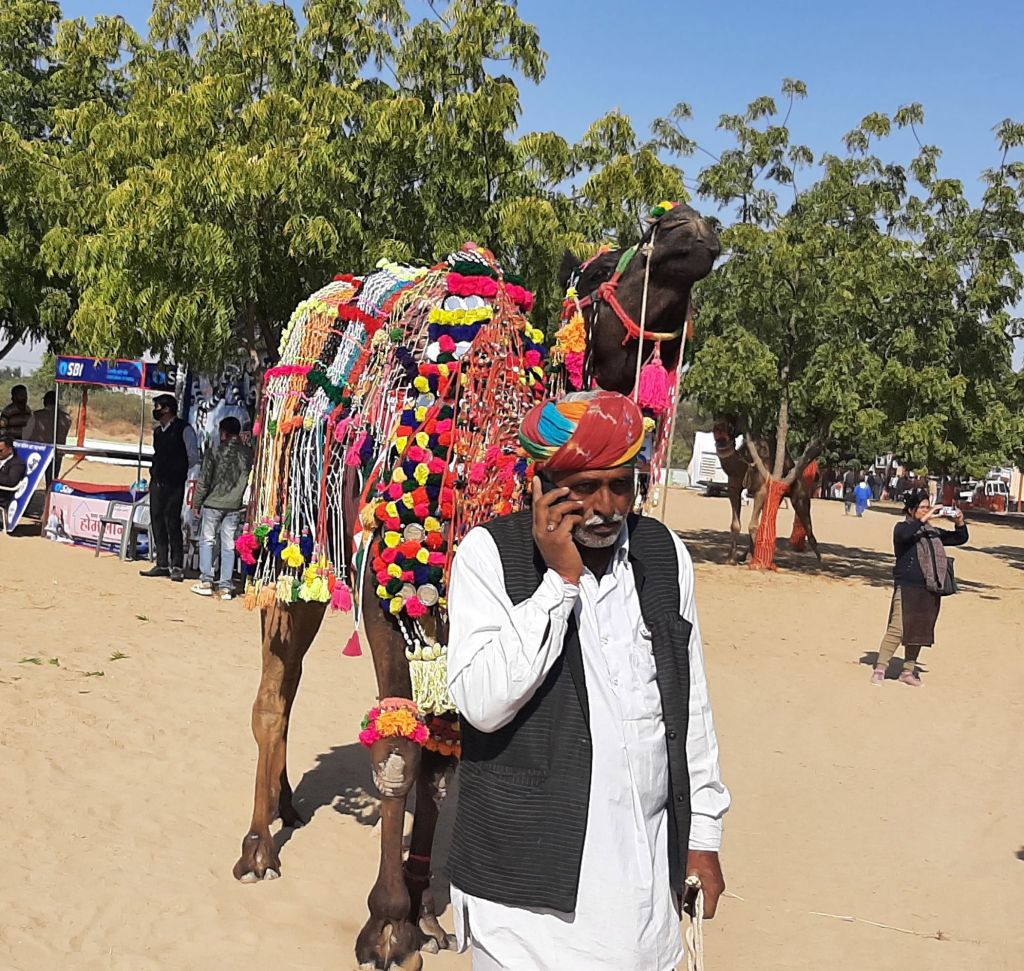
Leaving Bikaner was the trickiest part of the next segment. Every time I think that traffic cannot get any worse than this (despite David telling me, “you gotta stop saying that!”), there comes a town packed with mad men filling every inch of paved and unpaved road on some honking vehicle pushing their way through the chaos. The morning we left wasn’t any different. The guesthouse in Bikaner was like a peaceful oasis, but once we went through the gate, we were in the thick of it.
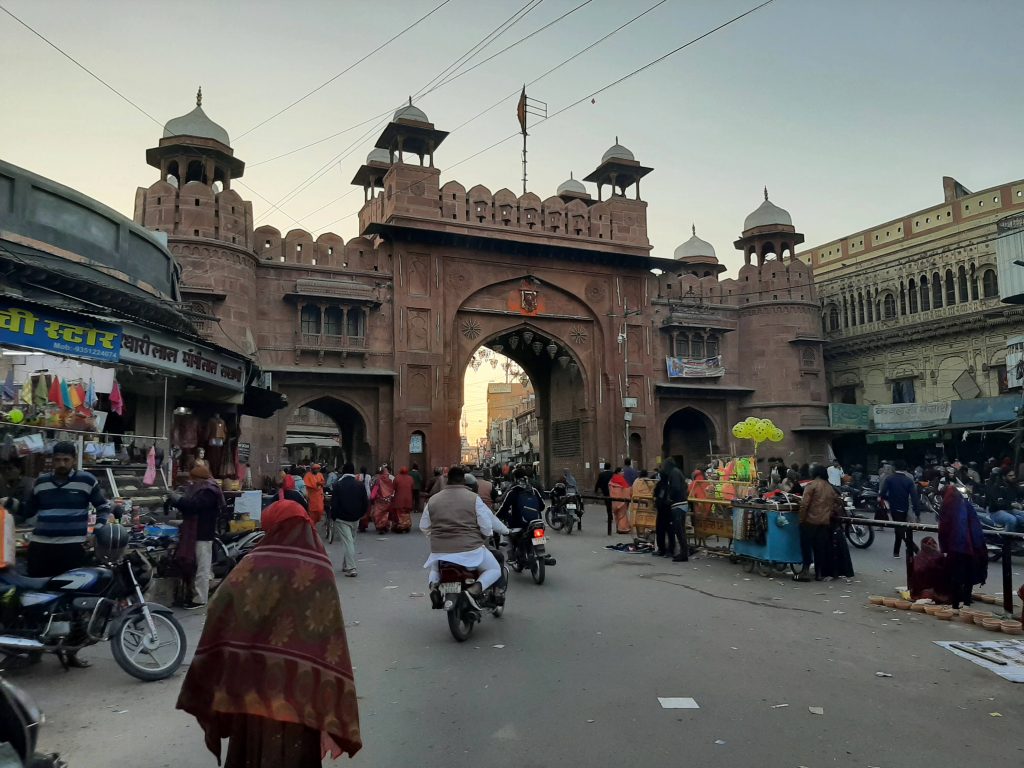
Imagine the full width of a two-lane road at a railway crossing with approximately ten motorbikes next to each other. Then imagine that on the full length of the road, with the occasional tuk-tuk wedged in between, all moving as one loud mass, each moving in a slightly different individual direction and honking wildly. Being one of those bikes is an experience that makes you discover one of two possible things: faith in a higher power that must watch over you or an insane self-confidence and determination. Occasionally, you need both to mentally process that you are still alive and upright, despite that environment.
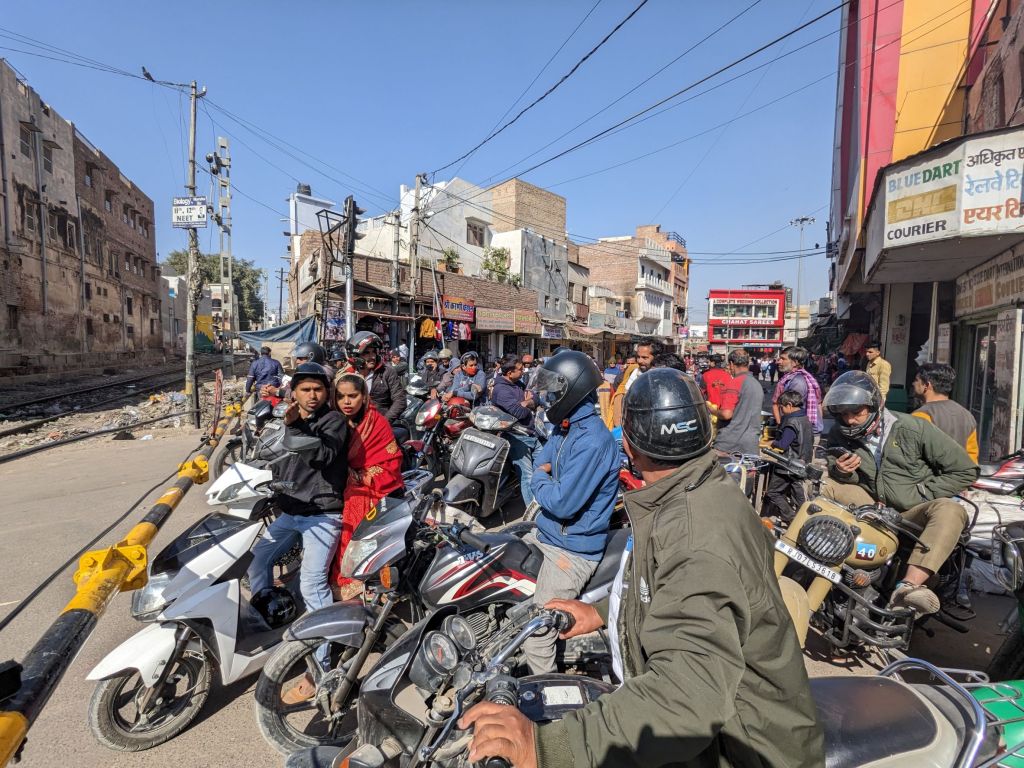
Once we left Bikaner, the roads became wide, smooth, and mostly uneventful. By now, we were getting used to choosing the shoulder to overtake trucks, as they seem to leave the room just for that – David still prefers to do a proper overtaking on the road, but that seems more difficult. Trucks are ok, in general, but cars are bad. They have no regard for anyone else on the road, perhaps because those who have cars here are typically wealthier and they manifest some sense of entitlement, but that is just me speculating about the reason for people’s terrible driving skills. No matter the reason, when you see a car overtaking a car that is overtaking a truck, all coming towards you and occupying the full width of the highway, you slam your brakes, swear, and hope that one of them comes to their senses before you need to go off the pavement altogether. At one of the stops, a man with a small, approximately five-year-old girl was puzzled to discover that I ride a motorcycle here. He said he’s been driving for twenty-five years but he would never let his daughter ride, as drivers are crazy; then proceeded to his car. I was too shocked, too slow, and too polite to respond with, “well, imagine what actually teaching her to ride that thing would do!”
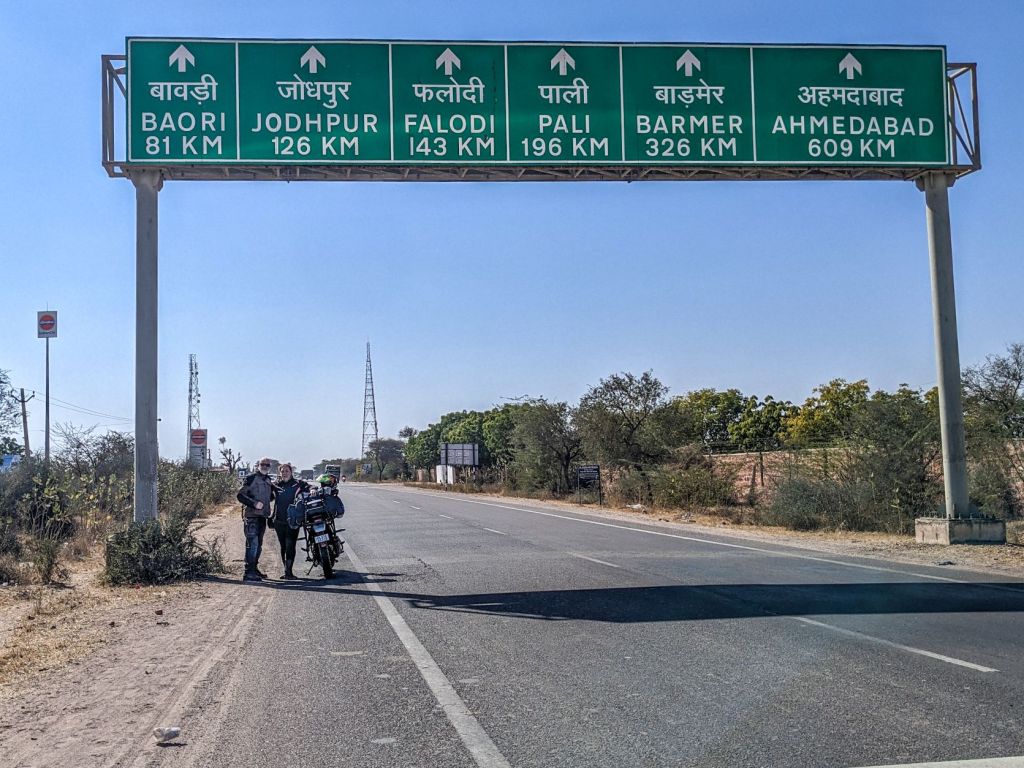
We got to Jodhpur to stay in a traditional blue haveli in the middle of the old town. Finding the place was interesting. David and I lost each other on the narrow lanes, and I even walked around a corner before riding it because I could not believe that there was a street where Google was sending me. But we made it and spent some lovely time on the rooftop terrace overlooking the fort, visiting the fort and the clock tower market and having lunch next to a stepwell, all with a view and food that would cost a fortune anywhere else. Jodhpur was lovely, and it was the first place during this trip where I could finally say, “I love this!” It took me a long time to see the beauty behind the dirt, the chaos, and the poverty, but Jodhpur was a breakthrough in this internal journey, and I finally feel happy to be here.
